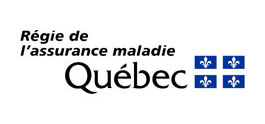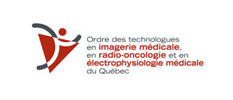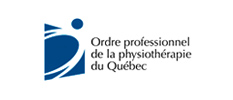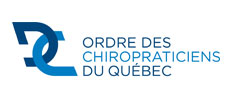What is ultrasound ?
Diagnostic ultrasound is the use of high frequency sound waves to visualize structures within the body. A small device called a probe is used to send sound waves into the body, which are then reflected off of internal organs. The returning sound waves (echoes) are then sent back to the same probe and transformed electronically into images. If your blood flow is what is being studied, audible sound as well as an image can be produced.
Is ultrasound safe ?
Diagnostic ultrasound has been in use for over 25 years. The American Institute of Ultrasound in Medicine has issued the following statement in regards to the clinical safety of ultrasound: 'No biological effects have been demonstrated on patients or instrument operators caused by exposure to ultrasounds as produced by current instruments. Although the possibility exists that such biological effects may be one day be identified, current data indicate that the benefits of the prudent use of diagnostic ultrasound outweigh the risks, that may be present.
Ultrasound manufacturers are constantly working to find additional ways to reduce exposure to ultrasounds without compromising diagnostic benefit.
Isn't ultrasound just for pregnancies ?
In addition to pregnancies, ultrasound is used to image all human body structures, except for bones and lungs. For example, we can examine the brain of children under one year of age. We can also test cervical structures, particularly the thyroid gland and carotid arteries, the heart, abdomen, pelvic cavity (uterus and ovaries), arteries and veins in limbs, and various musculoskeletal structures (except for bones). Ultrasound is one of the most quickly growing diagnostic tools. Clinicians around the world are constantly finding new applications for ultrasound systems.
Will ultrasound hurt ?
The procedure itself is painless. In order to obtain the best possible image, mild discomfort might occur from some pressure. A gel-like substance is applied to the skin surface so that the probe will have better contact. For some gynecological exams, it may be necessary to place the probe inside the vagina.
Ultrasound Services
The following is a list of ultrasound services that we offer. After a diagnostic radiologist completes your exam, we’ll give you the results in person. Your results will also be transmitted to your doctor.
- Abdominal
- Abdominal with doppler
- Abdominal & Pelvic
- Cardiac
- Nuchal translucency and prenatal screening
- Cervicoencephalic Doppler
- Venous Doppler
- Pelvic with or without endovaginal
- Testicular
- Thyroid
- Soft tissue
Ultrasound Preparation
* Abdominal ultrasound is the only ultrasound for which you must present on an empty stomach.
Abdominal
Fast 5 hours before the exam (water permitted).
Abdominal with Doppler
Fast 5 hours before the exam (water permitted).
Abdominal – Pelvic
Fast 5 hours before the exam (water permitted). One hour before the exam, empty your bladder and drink 500 ml of water to fill the bladder. Generally, this amount should be sufficient for the bladder to be full when the ultrasound is done.
Cardiac
No preparation
Nuchal translucency
An hour before the exam, empty your bladder and drink 500 ml of water and do not urinate before the exam.
Cervicoencephalic Doppler
No preparation
Venous Doppler
No preparation
Fetal (20 weeks or less)
An hour before the exam, empty your bladder and drink 500 ml of water and do not urinate before the exam.
Fetal (20 weeks or over)
Do not urinate one hour before your exam.
Sonohysterography
An hour before the exam, empty your bladder and drink 500 ml of water to fill the bladder. Generally, this amount should be sufficient for the bladder to be full when the ultrasound is done.
If we’re performing an endovaginal ultrasound exam, we’ll ask you to empty your bladder.
Breast
No preparation. However, you must bring any relevant previous radiological exams.
Musculoskeletal
No preparation. However, you must bring any relevant previous radiological exams.
Pelvic and endovaginal
An hour before the exam, empty your bladder and drink 500 ml of water to fill the bladder. Generally, this amount should be sufficient for the bladder to be full when the ultrasound is done. If we’re doing an endovaginal ultrasound exam, we’ll ask you to empty your bladder.
Testicular
No preparation
Thyroid
No preparation
Soft tissue
No preparation
FLUOROSCOPY
We are pleased to announce that we now offer a new fluoroscopy service for the treatment of spinal and joint pain.
Appointment Centre
Écho-Médic (Laval - Public)
1575, boul. de l'Avenir, suite 110, Laval, Qc, H7S 2N5Écho-Médic (Boisbriand - Public)
20865, chemin de la Côte Nord, suite 102, Boisbriand, Qc, J7E 4H5Réso-Médic (Laval - Private)
1575, boul. de l'Avenir, suite 110, Laval, Qc, H7S 2N5Customer Service Opening Hours
- Monday to Thursday - 7:30 am - 4:30 pm
- Friday - 7:30 am to 3:00 pm
- Saturday and Sunday - Depending on availability
Examination Opening Hours
- Monday to Thursday - 7 am - 8 pm
- Friday - 7 am - 3:30 pm
- Saturday and Sunday - Depending on availability
Career opportunities
Please send us your resume to the following address: cv@echo-medic.com
© 2025 Écho-Médic & Réso-Médic - Internet Marketing and Design powered by Escalade Marketing Digital
Our <strong>ultrasound</strong> services are now covered by the RAMQ
FLUOROSCOPY
We are pleased to announce that we now offer a new fluoroscopy service for the treatment of spinal and joint pain.







Stay connected